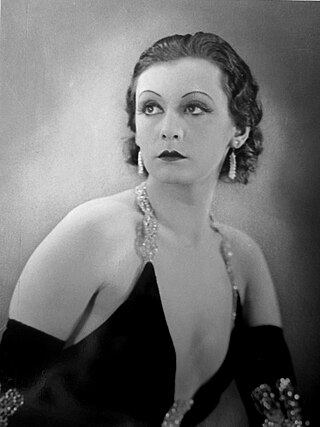
Zarah Leander was a Swedish singer and actress whose greatest success was in Germany between 1936 and 1943, when she was contracted to work for the state-owned Universum Film AG (UFA). Although no exact record sales numbers exist, she was probably among Europe's best-selling recording artists in the years prior to 1945. Her involvement with UFA caused her films and lyrics to be identified as Nazi propaganda. Though she had taken no public political position and was dubbed an "Enemy of Germany" by Joseph Goebbels, she remained a controversial figure for the rest of her life. As a singer, Leander was known for her confident style and her deep contralto voice.

Heinrich Wilhelm "Heinz" Rühmann was a German film actor who appeared in over 100 films between 1926 and 1993. He is one of the most famous and popular German actors of the 20th century, and is considered a German film legend. Rühmann is best known for playing the part of a comic ordinary citizen in film comedies such as Three from the Filling Station and The Punch Bowl. During his later years, he was also a respected character actor in films such as The Captain from Köpenick and It Happened in Broad Daylight. His only English-speaking movie was Ship of Fools in 1964.
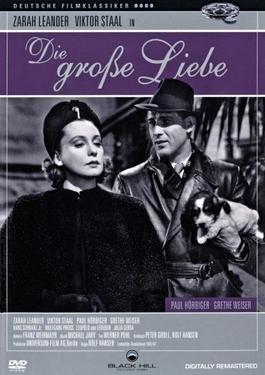
The Great Love is a 1942 German drama film directed by Rolf Hansen and starring Zarah Leander, Viktor Staal and Grethe Weiser. It premiered in Berlin in 1942 and went on to become the most commercially successful film in the history of the Third Reich.

Carl August Hugo Froelich was a German film pioneer and film director. He was born and died in Berlin.

Max Hansen , also known as 'The Little Caruso', was a Danish singer, cabaret artist, actor, and comedian.
Paul Victor Ernst Dahlke was a German stage and film actor.
Women Are Better Diplomats is a 1941 German musical comedy film from the Nazi era. Directed by Georg Jacoby and starring Marika Rökk, Willy Fritsch and Aribert Wäscher. It was based on a novel by Hans Flemming. The film was the first German feature film to be made in colour, and was one of the most expensive films produced during the Third Reich. The film met with a positive public response and was among the most popular German films of the early war years.
Der Postmeister is a 1940 Austrian-German film directed by Gustav Ucicky. Released during the Molotov–Ribbentrop Pact, it depicts Russians in a sympathetic light, unlike their depiction in such films as Frisians in Peril before or GPU after. It was very loosely based on The Station Master, an 1831 short story from The Belkin Tales series by Alexander Pushkin. It was remade in 1955 as Dunja. An earlier version was the French film Nostalgie (1938) with Harry Baur, directed by Victor Tourjansky.
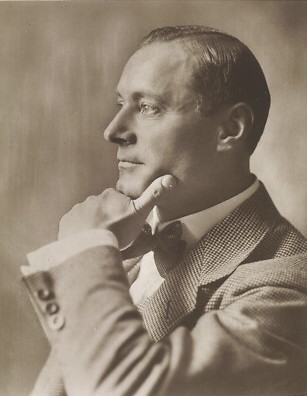
Heinrich August Franz Schroth was a German stage and film actor.
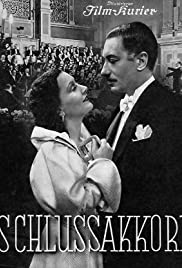
Schlußakkord is a German film melodrama of the Nazi period, the first melodrama directed by Detlef Sierck, who later had a career in Hollywood as Douglas Sirk and specialised in melodramas. It was made under contract for Universum Film AG (UFA), stars Lil Dagover and Willy Birgel and also features Maria von Tasnady, and premièred in 1936. It shows stylistic features later developed by Sierck/Sirk and makes symbolic and thematic use of music.
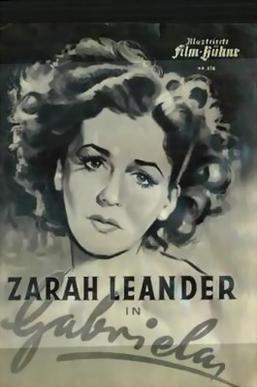
Gabriela is a 1950 West German musical drama film directed by Géza von Cziffra and starring Zarah Leander, Carl Raddatz, and Vera Molnar. It was Leander's comeback film after a seven-year absence from filmmaking. In 1943 when the Nazi leadership had demanded she take German citizenship, she had broken her contract with UFA and returned to her native Sweden. In the immediate post-war era she was banned from appearing in German films because of her previous association with the Nazi hierarchy. When the law was lifted in 1949, she was able to make films once more.

Premiere is a 1937 Austrian musical crime film directed by Géza von Bolváry and starring Zarah Leander, Attila Hörbiger, and Karl Martell. The wealthy backer of a Viennese musical revue is murdered on the first night of the show. It was Leander's first German language role after previously appearing in Swedish films. On the basis of her performance in the film, Leander was signed by the German Major studio UFA after their major rival, Tobis, had decided she had insufficient star appeal. Her next film To New Shores established Leander as the leading star in Germany.
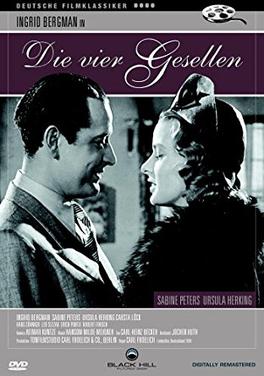
The Four Companions is a 1938 German drama film directed by Carl Froelich and starring Ingrid Bergman, Sabine Peters and Carsta Löck. Jochen Huth adapted the script from his own play. It was shot at the Tempelhof Studios in Berlin with sets designed by the art director Franz Schroedter. The film was intended as a star vehicle to launch Bergman's career in Germany following her success in several Swedish films.
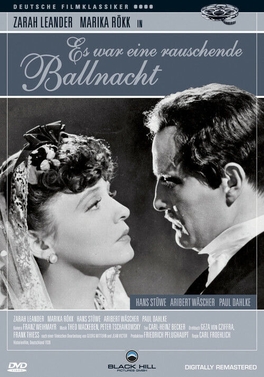
The Life and Loves of Tschaikovsky or It Was a Lovely Night at the Ball is a 1939 German historical drama film directed by Carl Froelich and starring Zarah Leander, Aribert Wäscher and Hans Stüwe. The film portrays the fictional relationship between the Russian composer Pjotr Iljitsch Tschaikowsky and an aristocratic woman who, unhappily married, falls in love with him and decides to secretly support his work financially. It premiered on 13 August 1939 at the Venice Film Festival.
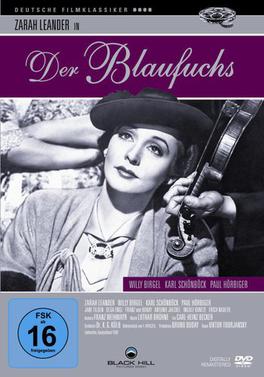
The Blue Fox is a 1938 German comedy film directed by Viktor Tourjansky and starring Zarah Leander, Willy Birgel and Paul Hörbiger. It was based on a play by the Hungarian writer Ferenc Herczeg. It includes the song Kann denn Liebe Sünde sein. It was shot at the Babelsberg Studios in Potsdam and on location in Budapest. The film's sets were designed by the art director Werner Schlichting.
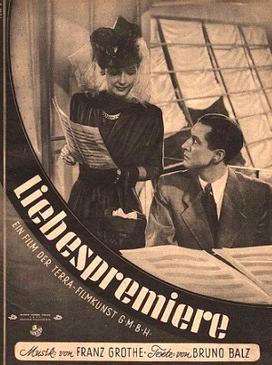
Love Premiere is a 1943 German comedy film directed by Arthur Maria Rabenalt and starring Hans Söhnker, Kirsten Heiberg and Fritz Odemar. The film's sets were designed by Robert Herlth.

Ripening Youth is a 1933 German drama film directed by Carl Froelich and starring Heinrich George, Peter Voß and Hertha Thiele.
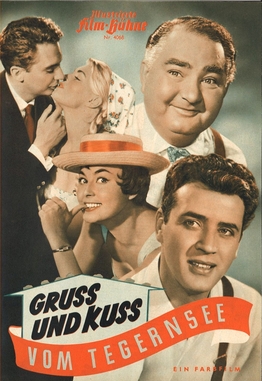
Greetings and Kisses from Tegernsee is a 1957 West German musical romantic comedy film directed by Rudolf Schündler and starring Elma Karlowa, Bert Fortell and Christiane Maybach. It was part of a large number of heimatfilm produced during the decade. It was shot at the Bavaria Studios in Munich and on location around Tegernsee. The film's sets were designed by the art directors Willi Herrmann and Heinrich Weidemann.
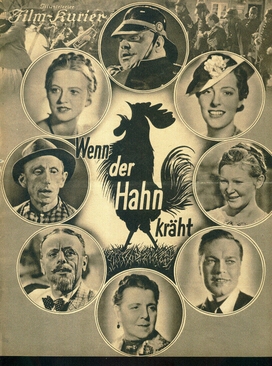
When the Cock Crows is a 1936 German comedy film directed by Carl Froelich and starring Heinrich George, Hans Brausewetter and Marianne Hoppe. It was shot at the National Studios in Berlin. The film's sets were designed by the art directors Walter Haag and Franz Schroedter. It is based on a folk play of the same title by August Hinrichs.
















